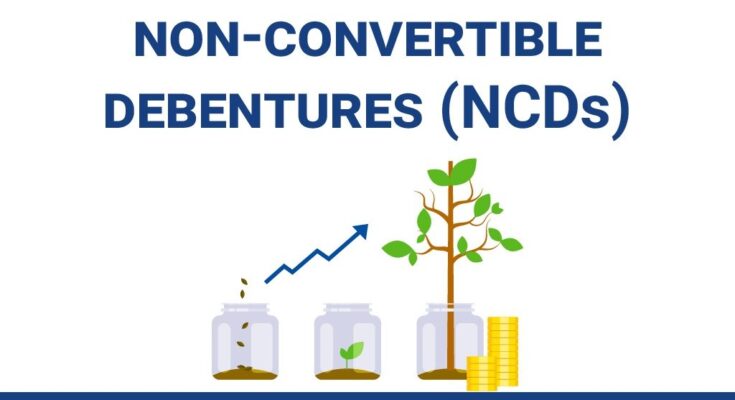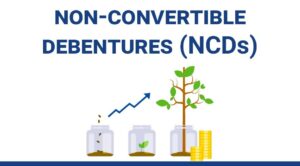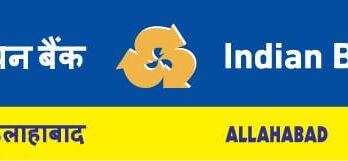What are NCDs
Non-convertible Debenture (NCDs) is a financial instrument that is used by companies to raise long-term capital through a public issue. NCDs have a fixed tenure and people who invest in these receive regular interest at a certain rate. Some debentures can be converted into shares after a certain point in time at the discretion of the owner. However, this is not possible in the case of NCDs. That’s why they are known as non-convertible. There are two types of NCDs: – Secured NCDs that are backed by the company’s ass ets, which means that if the company fails to pay, investors can claim payment through liquidation of ass ets and Unsecured NCDs that are not backed by the company’s assets hence riskier than Secured NCDs. Investment in a debt instrument like an NCD offers high inflation adjusted returns compared to traditio nal debt investments and hence are a good addition to an investors portfolio based on their risk appetite.
Are NCDs a good bet in current scenario?
With a coupon rate of close to 10% per annum, NCD issue stac ks up higher in comparison to other debt products. In the pres ent landscape, the Interest rate on a term deposit with a natio nalized bank like SBI fetches around 5.4% while liquid funds off er anywhere between 2.8-3 percent. Also, the NCD coupon rate is much higher than 10-year government securities which currently offer 6%. With interest rates trending low in a post covid scenario with abundant liquidity, it may be worthwhile to lock in the high yield of nearly 10%, available with NCDs
What are the NCDs on offer currently?
There are two NCD issues open, Muthoottu Mini and Edelweiss Financial services. Here’s a quick look at how they stack
| Company | Edelweiss Financial Services Ltd (EFSL) | Muthoottu Mini Financers Limited(Muthoottu Mini/MMFL) |
| Nature of Business | Diversified Financial Services Group | NBFC in gold loan business |
| Issue Size | ₹200 crore with an option to retain oversubscription up to ₹200 crore, aggregating up to ₹400crore. | ₹125 crore with an option to retain oversubscription up to ₹125 crore, aggregating up to ₹250 crore. |
| Issue Price | INR 1,000/- | INR 1,000/- |
| Face Value | INR 1,000/- | INR 1,000/- |
| Minimum Investment | 10,000/-(10 NCDs) across all series | 10,000/-(10 NCDs) across all options of NCDs |
| Security type | Secured | Secured upto INR 200 crs & Unsecured upto INR 50 crs |
| Credit Rating | A+ (Negative) by ICRA and AA (Negative) by Acuite Ratings | CARE BBB+ Stable (Triple B Plus Stable) by CARE Ratings Limited |
| Tenure | 36 months, 60 months & 120 months | Secured -480 months, 24 months, 42 months, 50 months
Unsecured-66 months, 84 months |
| Effective annualized yield | 9.09 % to 9.70% | 10.22% p.a. for Secured NCDs & 10.41 % p.a. for Unsecured
10.47% p.a. for Unsecured 66 months with monthly interest payment |
How should one choose among the two on offer?
Coupon rate– Consider a company with higher coupon rate i.e. Interest rate offered by the issuer. EFSL NCD is offering an effective yield of up to 9.7% which is highly lucrative given the low interest rate stru cture of the economy currently. The NCD issue is secured in nature, meaning that if there will be a fina ncial crisis situation at the company then investors interest will be put on priority and they will be paid back their principal amount together with the applicable interest rate, if any. This de-risks the investme nt compared to unsecured NCDs. While the coupon rate is attractive, an existing investor of EFSL or gro up company NCD will entitled to an additional pay out of 0.2 per cent per annum.
Tenure– NCD’s usually have a maturity period of 30, 60 or 120-months.In an uncertain environment, in vestors can benefit from the monthly cashflow by opting for the monthly interest option. Edelweiss off ers a monthly interest option that help you get monthly cashflows, rarely do you get such options in the market.
Credit Risk – (Security, nature of business)- – It is the Company’s credit performance. Invest in a NCD wh ich is secure, having a higher credit rating. CRISIL has reaffirmed the EFSL rating of AA- (Negative) on the confidence of the improving credentials of the company. Also the NCDs have been rated A+ (Negati ve) by ICRA and AA (Negative) by Acuite Ratings. The ratings signify that thee NCDs come with a low cr edit risk.
While the ratings by the rating agencies signify the associated risks, it can largely be attributed to the we ak external credit environment, on account of which agencies have remained conservative. However the diversified nature of the business as well as the strengthening measures undertaken by the company with stable liquidity levels and a strong balance sheet should definitely put investors at ease.
Repayment track record–One should check the repayment track record of the issuer on both the interest and principal. Edelweiss has been raising money from the primary market for almost 10 years and enjoy a good track record. Their past issues have seen a good response from repeat investors,. Investors have be nefitted from the early repayments as well
With the Covid 19 second wave nearing the end we are beginning to see a swift economic recovery. This may work for a few well-managed NBFCs such as Edelweiss. Investors looking for regular income and high interest rates may find this offer an attractive bet.





